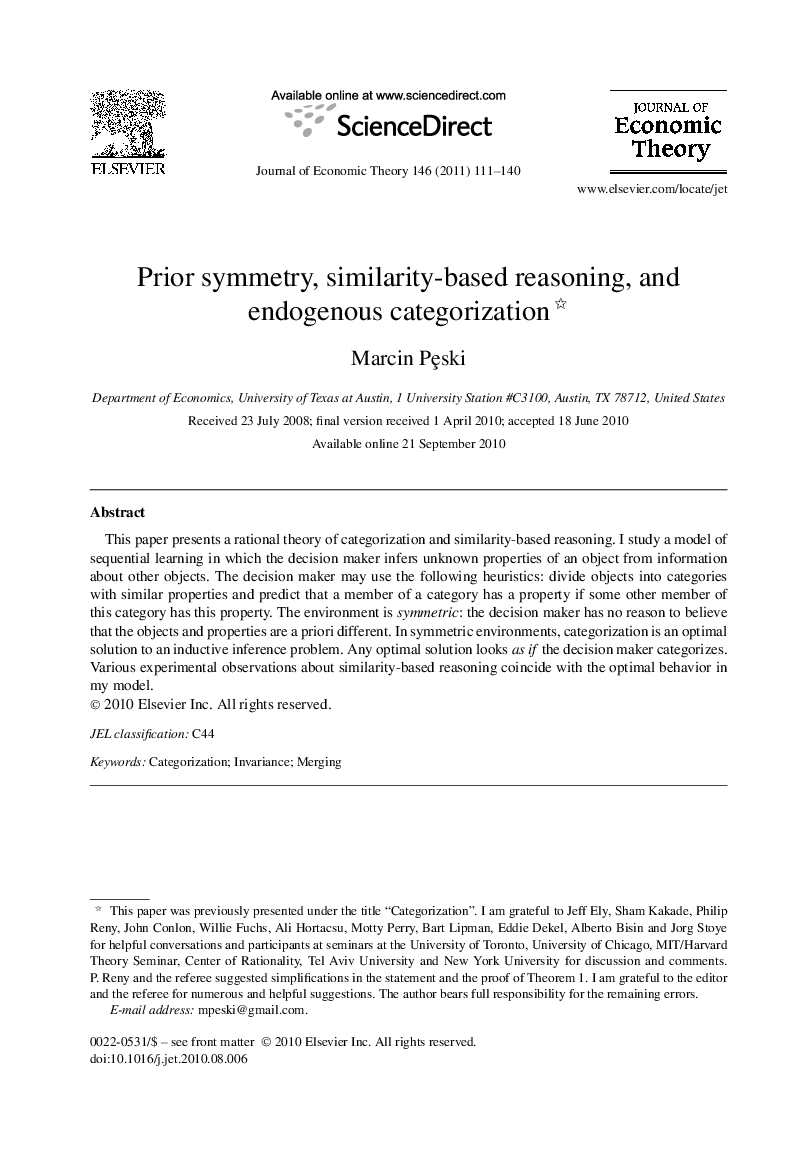| Article ID | Journal | Published Year | Pages | File Type |
|---|---|---|---|---|
| 957159 | Journal of Economic Theory | 2011 | 30 Pages |
This paper presents a rational theory of categorization and similarity-based reasoning. I study a model of sequential learning in which the decision maker infers unknown properties of an object from information about other objects. The decision maker may use the following heuristics: divide objects into categories with similar properties and predict that a member of a category has a property if some other member of this category has this property. The environment is symmetric: the decision maker has no reason to believe that the objects and properties are a priori different. In symmetric environments, categorization is an optimal solution to an inductive inference problem. Any optimal solution looks as if the decision maker categorizes. Various experimental observations about similarity-based reasoning coincide with the optimal behavior in my model.
